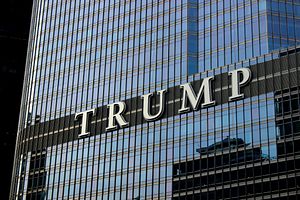U.S.-China ties continue to chug along in the Trump era. Yang Jiechi, China’s state councilor, just became the highest-ranking Chinese official to visit the U.S. since Trump’s inauguration and met with U.S. Vice President Mike Pence, Trump’s chief strategist Steve Bannon, National Security Adviser H.R. McMaster, and son-in-law Jared Kushner. My colleague Shannon Tiezzi had a closer look at the circumstances of Yang’s visit to the U.S. in the pages on Monday.
Interestingly, Sean Spicer, Trump’s press secretary, dropped an interesting nugget of information during Monday’s regular White House press conference. Close readers might recall that both the Chinese and U.S. readouts of the long-awaited call between Trump and Chinese President Xi Jinping included little on substance outside of an acknowledgement that Trump acknowledged and reaffirmed the United States’ “one China” policy. His commitment to that policy came under question in early December 2016, after Trump broke with precedent and received a call from Tsai Ing-wen, the president of Taiwan.
One of the questions that many U.S. China watchers have had in the aftermath of that call is if Trump used his vacillation on one China to extract any concessions from Xi on the call. This question came up during Monday’s press conference and Spicer’s answer was interesting. “What did he get in return from China for doing that?” a reporter asked Spicer, regarding Trump’s affirmation of the one China policy. Spicer offered few details, falling back on the Trumpian rationale that “the president is not one to discuss his negotiating tactics.” (Trump likes to hold his cards close to the chest.)
“But did he get something? … Can he assure the American people he got something?” the reporter pressed on. “The president always gets something,” Spicer replied.
The implication here is that Trump did succeed in extracting something from Xi on that call. We just don’t know what yet, from either the U.S. or the Chinese side. One can of course speculate here. For example, Trump could have sought assurances that China would enter discussions on trade with the United States in good faith and agree to rein in some of its more problematic and protectionist practices. The door here was opened by Beijing before the Xi-Trump call, as I’d noted, so this isn’t unthinkable. Chinese state news agency Xinhua‘s preview of Yang’s trip also noted trade was on the agenda.
There’s a more disturbing explanation for Spicer’s comment too.
Amid his refusal to fully divest from his private business interests, Trump’s presidency has raised unusual concern about his potential receipt of emoluments. Days after the call, news broke that China’s State Administration for Industry and Commerce, the Chinese state entity responsible for the country’s Trademark Office, had approved a long-awaited and valuable trademark under the U.S. president’s name. Could this be what Spicer meant when he said the president “always gets something?”
No concrete evidence has emerged of a connection between the call, Trump’s acceptance of one China, and the trademark. This is just a post hoc ergo propter hoc claim for the moment, but the point I’m getting at is the White House’s refusal to elaborate combined with existing concerns about the possibility that Trump may pursue emoluments in office leave the administration open to unfriendly explanations. Trump has 49 pending trademark applications in China.
Perhaps Trump simply did extract a concession from Xi in good faith as the elected representative of the American people on a core issue of national interest. Trump’s long-standing record of acerbic rhetoric against China on trade and even the South China Sea suggest that he may not have dispassionately pursued self-interest on his call with Xi. But even if this is the case, continued concerns regarding emoluments and Trump’s ongoing ties with his business will cloud our view of how this president conceives of U.S. interests.
Under normal circumstances, these questions shouldn’t even come up, but with Trump, they do and they will.

































